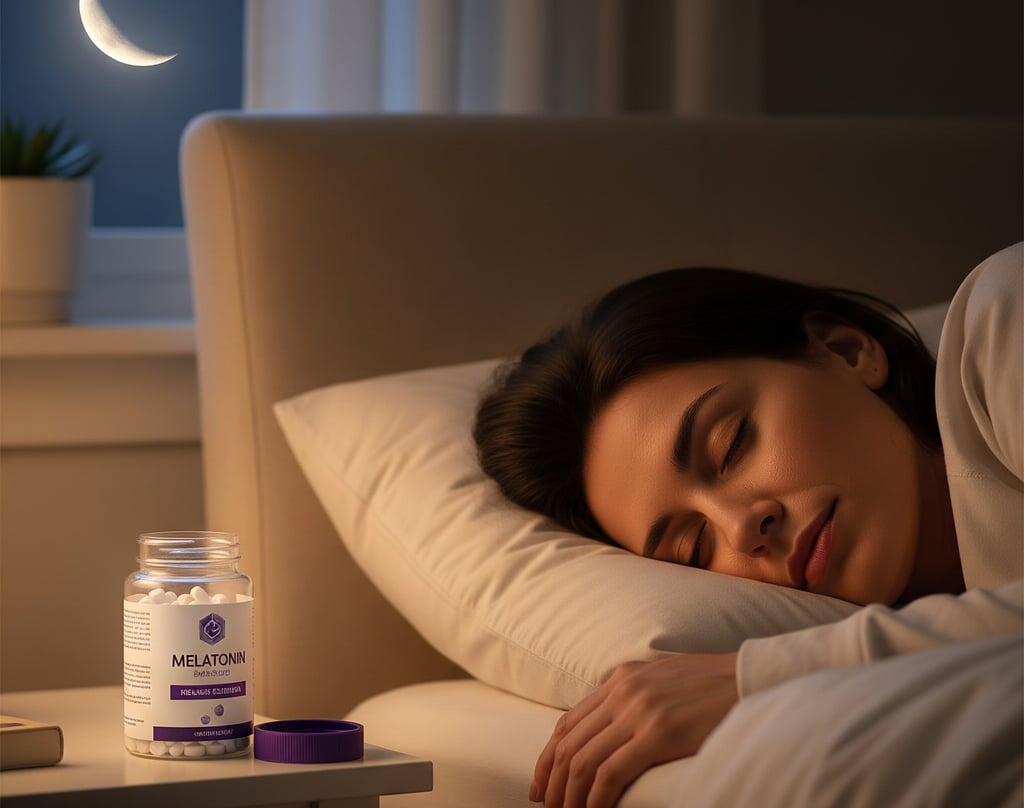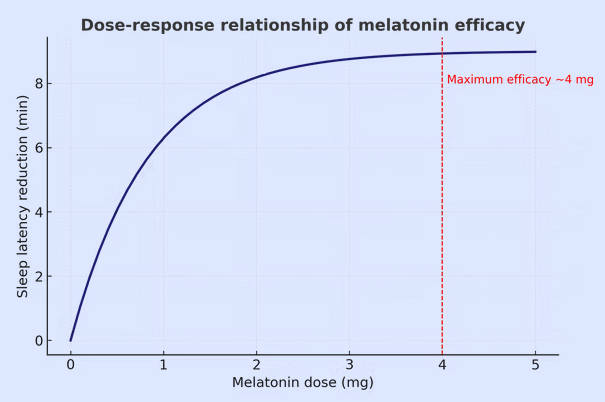Melatonin: Complete guide for a better sleep according to science
Discover What Science Says About Melatonin: Its Ideal Dose, When to Take It, and How It Improves Sleep Quality.
MELATONIN
Nuri El azem De haro
8/27/20253 min read


What is melatonin and why is it key for sleep?
Melatonin is a hormone that our brain naturally produces during the night. Its main function is to regulate the sleep-wake cycle, acting as a biological signal that tells our body it's time to rest.
When we produce it in smaller quantities—due to stress, screen use, night work, or aging—our sleep can be affected. In these cases, supplemental melatonin can help restore a restful night's sleep.
Melatonin Benefits Backed by Studies
Two recent scientific reviews, published in the Journal of Pineal Research and Journal of Neurology, analyzed more than 40 clinical trials and their conclusions are clear:
Reduces the time it takes to fall asleep by an average of 9 minutes compared to a placebo.
Increases total sleep time and improves its continuity.
Improves the perceived quality of sleep, especially in people with insomnia, respiratory problems, or metabolic disorders.
It is safe and well-tolerated, even in treatments lasting several weeks.
What is the best time to take melatonin?
One of the most relevant findings is that the timing of administration is as influential as the dose. Science recommends:
Taking it 3 hours before your desired bedtime to maximize its sleep-inducing effect.
Avoiding taking it right before bed, as its action may be less effective at that time.
Optimal Dose According to Evidence
Although presentations from 1 mg to 10 mg exist on the market, studies show that:
Between 2 and 4 mg is the most effective dose for adults in most cases.
Higher doses (>3 mg) tend to produce slightly greater improvements in sleep quality, but are not always necessary.
Immediate-release: useful for falling asleep faster.
Extended-release: better for maintaining stable sleep throughout the night.
Who Benefits Most from Melatonin?
Melatonin has shown greater efficacy in:
People with insomnia.
Patients with respiratory diseases (asthma, COPD).
People with metabolic disorders (diabetes, metabolic syndrome).
Cases of jet lag or circadian rhythm disturbances. No level of benefit has been observed in patients with neurodegenerative diseases or certain mental disorders.
Safety and Side Effects
In general, melatonin is safe even at high doses. Possible mild effects include:
Morning drowsiness.
Headache.
Vivid dreams. These usually improve by adjusting the dose or administration time.
Final Recommendations from a Pharmacist
Melatonin is not a chemical sedative, and its best effect is obtained as part of good sleep hygiene: maintaining regular schedules, avoiding screens before bed, and creating a dark, quiet environment. If you are thinking of trying it and still have doubts, you can contact me to determine the most suitable dose and format for you, while avoiding interactions with other medications.
💡 If you are willing to buy melatonin, here is a link to Amazon´s webpage. There are many different presentations to choose from so feel free to contact me in case you need more information about wich one is the best suited for you.
❓ Frequently Asked Questions About Melatonin
1. How long does it take for melatonin to work? Generally, melatonin begins to act between 30 and 60 minutes after ingestion, although its maximum effectiveness is achieved if taken about 3 hours before bed.
2. Is it safe to take melatonin every day? Yes, studies show that its daily use for weeks or even months is safe in healthy adults. However, medical supervision is always recommended.
3. Is melatonin addictive? No. Unlike other sleep medications, melatonin does not cause addiction or withdrawal symptoms upon discontinuation.
4. Which is better, immediate-release or extended-release melatonin?
Immediate-release: ideal for falling asleep faster.
Extended-release: useful if the problem is waking up multiple times during the night.
5. Can I take melatonin if I am pregnant or breastfeeding? Its use is not recommended during pregnancy or breastfeeding without medical guidance, as evidence on its safety in these cases is limited.
6. Does melatonin help with jet lag? Yes. Taking it at the correct time according to your destination can help reset your biological clock and reduce the effects of time zone changes.


